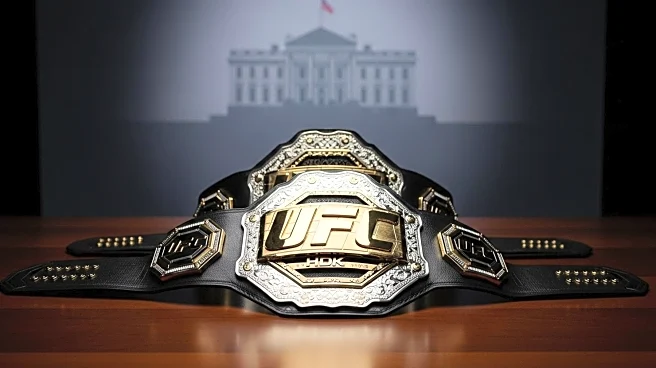What's Happening?
Conor McGregor has been handed an 18-month suspension by the UFC's anti-doping program, Combat Sports Anti-Doping (CSAD), for missing three drug tests in 2024. The suspension, which began retroactively on September 20, 2024, will end on March 20, 2026. Despite this setback, McGregor has been vocal about his desire to participate in a UFC event at the White House scheduled for June 2026. However, UFC CEO Dana White has clarified that no negotiations for the event have begun, and McGregor's participation is not guaranteed.
Why It's Important?
McGregor's suspension is a significant development in the world of mixed martial arts, as he is one of the sport's most recognizable figures. His absence could affect the UFC's ability to attract viewers and generate revenue, particularly for high-profile events like the planned White House card. The situation underscores the importance of adhering to anti-doping regulations and the potential consequences for athletes who fail to comply. The UFC must balance the need for strict enforcement of these policies with the commercial benefits of having star fighters like McGregor on their roster.
What's Next?
As McGregor's suspension runs its course, the UFC will need to decide on his potential involvement in the White House event. With negotiations set to begin in February 2026, the organization must weigh the benefits of including McGregor against the importance of maintaining a strong stance on anti-doping compliance. The outcome of this decision will be closely watched by fans, sponsors, and other stakeholders, as it could set a precedent for how similar cases are handled in the future.










